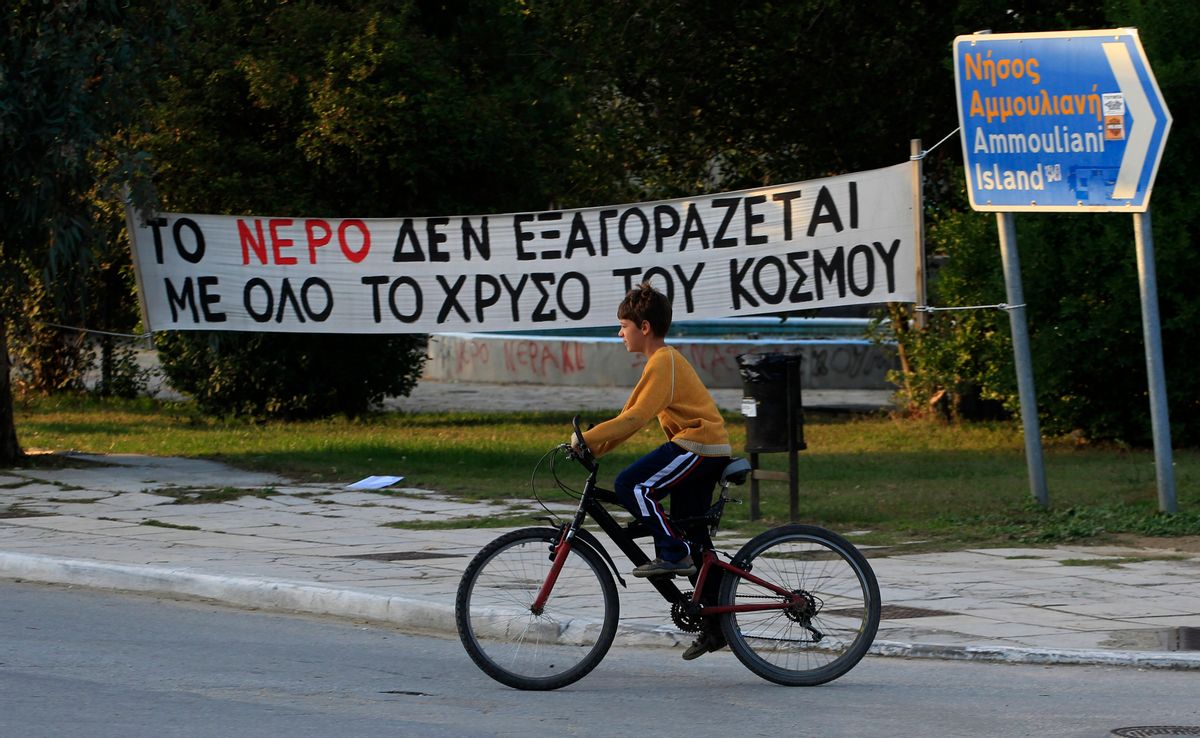The head of the European Central Bank has ruled out handing Greece a debt relief lifeline, hours after the head of the eurozone finance ministers admitted that Athens will need additional aid next year.
ECB president Mario Draghi was adamant that the ECB would not participate in any debt restructuring, despite growing speculation that Greece will be unable to fully return to the financial markets when its current bailout ends in 2014.
"It is pretty clear that we cannot do monetary financing," Draghi told reporters in Frankfurt on Thursday, insisting that the ECB's own treaty made it impossible. Asked directly if the ECB would take part in any Greek debt relief, he said: "No", adding that any future assistance for Greece must also come with strings attached, or "conditionality".
Greece faces a funding gap of up to €11bn in the second half of 2014, according to figures from the International Monetary Fund. Rumours that a third bailout will be needed have swirled through the financial markets in recent weeks.
Dutch finance minister Jeroen Dijsselbloem, who also chairs the eurogroup of finance ministers, left MEPs in little doubt that euro governments will have to consider some extra help for Greece soon. Appearing at the European parliament, Dijsselbloem said it was "realistic to assume that additional support will be needed" when the existing bailout concludes at the end of next year.
"As far as the potential need for a third programme for Greece is concerned, it's clear that despite recent progress, Greece's troubles will not have been completely resolved by 2014," said Dijsselbloem, who warned that Greece would probably not be able to return to borrowing from the financial markets when its bailout ends.
Dijsselbloem said the Eurogroup "stood ready" to help Greece, while rejecting suggestions that a full-blown third bailout package would be needed. He argued that officials would not be able to assess Greece's progress until next April. But according to Reuters, Euro officials may need to take a decision this November.
Last week, Greece's finance minister Yannis Stournaras told the Guardian there was no imminent need of a bailout. But while tourism has picked up this summer, unemployment remains around record levels. It will not return to pre-crisis levels for 20 years, according to new research from the country's main private sector union, GSEE.
The euro fell almost one cent against the US dollar, after it emerged that the ECB's governing council had considered cutting borrowing costs across the eurozone to a new record low.
The ECB cut its forecast for growth in 2014 to 1%, from 1.1%, illustrating the weak nature of the recovery. Draghi warned that he was "very, very cautious", despite the eurozone exiting recession last month.
Jessica Hinds of Capital Economics was gloomy. "Despite the string of better economic numbers over the summer in the eurozone, we still expect the region to underperform the US and the UK. Indeed, we do not forecast the eurozone to grow at all next year, much less than the 0.8% growth that is expected by the consensus and the 1.0% by the ECB. By contrast, we are forecasting the UK to grow by 2% in 2014 and the US economy to expand by 2.5%."
Analysts at Nordea Markets predicted that the ECB could cut interest rates from 0.5% to a new record low of 0.25% before the end of the year, having voted to leave them unchanged this month.



Shares